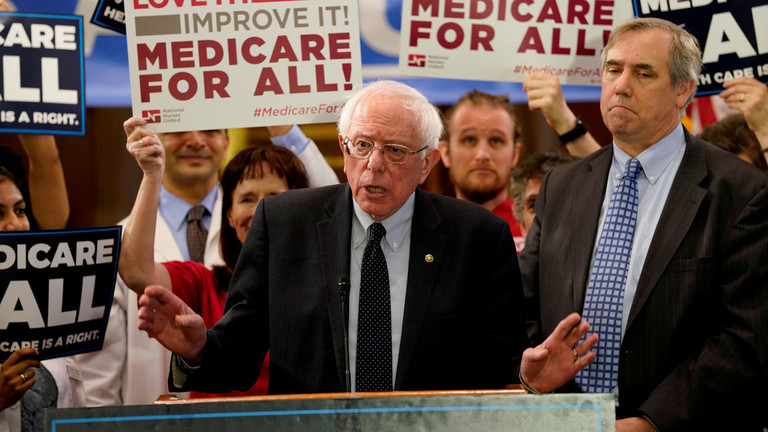
In his latest push for universal healthcare, 2020 candidate Bernie Sanders argued that Americans would be “delighted to pay more taxes” if that meant guaranteed access to treatment.
Speaking to CNN’s Anderson Cooper on Wednesday night, the socialist stalwart made the case for bringing a European-style healthcare system to the US.
“I suspect that a lot of people in the country would be delighted to pay more in taxes if they had comprehensive health care as a human right,” Sanders told Cooper.
“Your kids in many countries around the world can go to the public colleges and universities tuition-free, wages in many cases are higher,” Sanders continued. “So, there is a tradeoff, but at the end of the day, I think… most Americans will understand that is a good deal.”
Though Sanders cited Germany as an example of an ideal healthcare system, there are some key differences between the German model and the ‘Medicare for All’ plan advocated by Sanders. The German system is a multi-payer system funded by private and public sources. ‘Medicare for All,’ at least in its current iteration, is a single-payer system that would bar employers from providing competing private alternatives and could eliminate America’s $600 billion private insurance industry.
Medicare for All is a generous package that comes with a hefty price tag. The Committee for a Responsible Federal Budget – a supposedly non-partisan think tank – puts the price at $28 trillion, or nearly ten percent of the US’ GDP. Sanders’ own estimate turns out a cost of $13 trillion over ten years, still a roughly 30 percent increase in federal spending and an outlay more than 18 times larger than even the US military’s astronomical annual budget.
Americans largely support the idea of Medicare for All, with 70 percent in favor of a single-payer system, according to a Reuters poll taken last August. However, support for such a system drops off to 37 percent once they learn it would necessitate a massive tax hike to implement.

